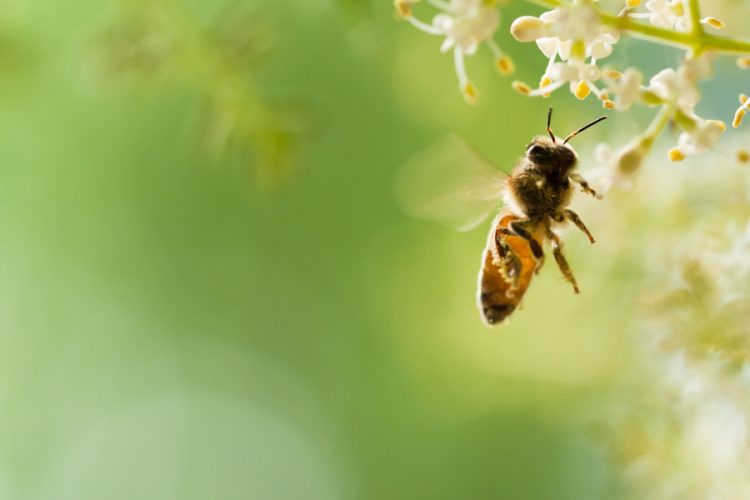FAO: Bees must be protected for the future of our food
Posted: 22 May 2018 | George Smith (New Food) | 1 comment
On the eve of the first World Bee Day on Sunday, the UN Food and Agriculture Organization (FAO) urged countries and individuals to do more to protect bees and other pollinators or risk a sharp drop in food diversity.


BUZZ: Recently, the EU approved stricter regulations on neonicotinoids, a class of pesticides damaging to bees
Bees are under great threat from the combined effects of climate change, intensive agriculture, pesticides, biodiversity loss and pollution.
In Slovenia for the official ceremony to mark World Bee Day (20th May), the Food and Agriculture Organization’s (FAO’s) Director-General José Graziano da Silva said countries need to shift to more pollinator-friendly and sustainable food policies and systems.
He said: “We cannot continue to focus on increasing production and productivity based on the widespread use of pesticides and chemicals that are threatening crops and pollinators.”
“We must now turn our words into actions and perform specific activities to conserve bees and other pollinators, thus taking care of their survival and, consequently, our own survival,” Slovenia’s Minister of Agriculture, Forestry and Food Dejan Židan added.
More than 75 per cent of the world’s food crops rely to some extent on pollination for yield and quality. The absence of bees and other pollinators would wipe out coffee, apples, almonds, tomatoes and cocoa, to name just a few of the crops that rely on pollination.
“Each one of us has an individual responsibility towards protecting bees and we should all make pollinator-friendly choices. Even growing flowers at home to feed bees contributes to this effort,” Graziano da Silva said.
Pollinators, such as bees, wild bees, birds, bats, butterflies and beetles fly, hop and crawl over flowers to help plants fertilise. Pollinator numbers and diversity have declined in the past decades, and evidence indicates that the decline is primarily a consequence of human activities including climate change which can disrupt flowering seasons.
Sustainable agriculture practices, and in particular agroecology, can help protect bees by reducing exposure to pesticides and helping to diversify the agricultural landscape.
“Through agroecology, FAO seeks to optimise the interactions between plants, animals, humans and the environment. Innovations are needed and they must be based on the co-creation of knowledge, combining science with local knowledge and experiences, as a social process,” Mr da Silva said.
With the World Health Organization, FAO has also developed the International Code of Conduct on Pesticide Management. This provides a framework on best practices that can help decrease the exposure of pollinators to pesticide.
The official ceremony for the first World Bee Day will be held tomorrow in the Slovenian village of Breznica, 50 kilometres north-west of the capital, under the patronage of Slovenia’s President Borut Pahor. Breznica is the birth place in 1734 of Anton Janša, an apiarist and a pioneer of modern apiculture. His birthday, May 20, was chosen to be marked annually as World Bee Day.
Slovenia, with FAO, was instrumental in establishing the international day through a UN General Assembly resolution adopted unanimously last year, with support from Apimondia, or the International Federation of Beekeepers’ Associations as well as Slovenia’s Beekeepers’ Association and the Ministry of Agriculture, Forestry and Food.
Related topics
Food Security, Free From, Herbicides, Pesticides, Sustainability










UK is the biggest world importer of CHINESE syrup entering customs as honey. It is a matter of time that the fraud is unveiled. The major motive for bees disappearing is low prices of honey as 75% of the planet requires that humans take care of the pests and diseases that globalization has brought to hives.